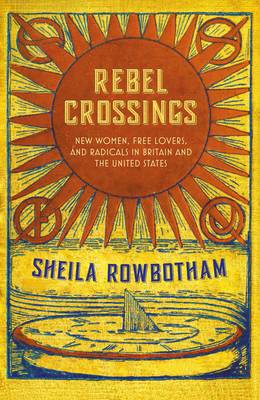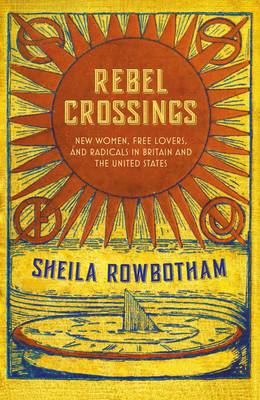
- Afhalen na 1 uur in een winkel met voorraad
- Gratis thuislevering in België vanaf € 30
- Ruim aanbod met 7 miljoen producten
- Afhalen na 1 uur in een winkel met voorraad
- Gratis thuislevering in België vanaf € 30
- Ruim aanbod met 7 miljoen producten
Zoeken
Rebel Crossings
New Women, Free Lovers, and Radicals in Britain and the United States
Sheila Rowbotham
Hardcover | Engels
€ 37,45
+ 74 punten
Omschrijving
The transatlantic story of six radical pioneers at the turn of the twentieth century Rebel Crossings relates the interweaving lives of four women and two men as they journey from the nineteenth to the twentieth century, from Britain to America, and from Old World conventions toward New World utopias. Radicalised by the rise of socialism, Helena Born, Miriam Daniell, Gertrude Dix, Robert Nicol and William Bailie cross the Atlantic dreaming of liberty and equality. The hope for a new age is captured in the name Miriam and Robert give their love child, born shortly after their arrival: Sunrise. A young Bostonian, Helen Tufts learns of Miriam's defiant spirit through her close friendship with Helena; the love she feels for Helena and later for William fundamentally alters her life. All six are part of a wider historical search for self-fulfillment and an alternative to a cruelly competitive capitalism. In articles, poems and allegories Helena, Helen and Miriam resist the cultural constraints women face, while female characters in Gertrude's novels struggle to combine personal happiness with radical social commitment. William campaigns against class inequality as a socialist and an anarchist while longing to read and study. Robert, the former union militant, becomes preoccupied with personal growth and mystical enlightenment in the wilds of California. Rebel Crossings offers fascinating perspectives on the historical interaction of feminism, socialism, and anarchism and on the incipient consciousness of a new sense of self, so vital for women seeking emancipation. These six lives bring fresh slants on political and cultural movements and upon influential individuals like Walt Whitman, Eleanor Marx, William Morris, Edward Carpenter, Patrick Geddes and Benjamin Tucker. It is a work of significant originality by one of our leading feminist historians and speaks to the dilemmas of our own time.
Specificaties
Betrokkenen
- Auteur(s):
- Uitgeverij:
Inhoud
- Aantal bladzijden:
- 512
- Taal:
- Engels
Eigenschappen
- Productcode (EAN):
- 9781784785888
- Verschijningsdatum:
- 25/10/2016
- Uitvoering:
- Hardcover
- Formaat:
- Genaaid
- Afmetingen:
- 157 mm x 236 mm
- Gewicht:
- 861 g

Alleen bij Standaard Boekhandel
+ 74 punten op je klantenkaart van Standaard Boekhandel
Beoordelingen
We publiceren alleen reviews die voldoen aan de voorwaarden voor reviews. Bekijk onze voorwaarden voor reviews.











